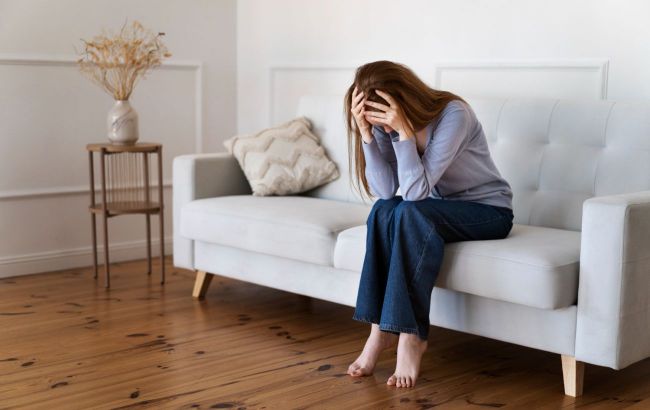Loneliness is a 21st century disease: Therapist's explanation
 Illustrative photo (Freepik)
Illustrative photo (Freepik)
Loneliness is often dubbed the disease of the 21st century. This condition is even referred to as an "acute threat to global health," with its impact on the body likened to smoking 10-15 cigarettes a day, according to the medical community Berezhy Sebe (Take Care of Yourself).
Loneliness
Psychotherapist Anna-Maria Breysacher explained that loneliness is a subjective emotional state of a person when we feel pain due to the absence of close connections.
Sometimes we choose to be alone. In this case, it's about solitude - a way in which we distance ourselves from social environments to satisfy other needs.
During these moments, a person may not feel loneliness, but instead feel filled with senses, peace, and harmony.
When alone, we can be either content or deeply unhappy. What matters is whether there is an open path back to others.
The feeling of belonging is crucial for a sense of purpose in life. However, we all have a different degree of this need: for some, family is enough, for others, it's friends, a professional, or virtual community.
This condition is often associated with feeling as if the world doesn't see us, doesn't feel the need for our presence, and could do well without us.
Loneliness is also linked to trust. When we don't trust others, we become more cautious in what we say and do, less spontaneous, and less open.
How it affects health
Loneliness affects both physical and psychological health:
- Increases the risk of developing cardiovascular diseases and other chronic conditions
- Worsens sleep quality
- Increases stress hormone levels
- Accelerates aging processes
Loneliness is also associated with anxiety, depression, increased suicide risk, and dementia.
When a person feels lonely, some symptoms of depression intensify.
How to help oneself
Recognizing such a state can be very unpleasant and even shameful, as it partly concerns the dissatisfaction with our social life or feeling insignificant to others.
People often try to hide their loneliness from others and even from themselves.
In such cases, asking oneself the following questions might be helpful:
- In which specific situations or times of the day do I feel most lonely?
- Do I have any social connections I can turn to for support?
- Am I actively engaging in activities that bring me joy and satisfaction?
- Are there any patterns or triggers in my life that contribute to feelings of loneliness?
- Have there been any significant changes in my life recently that could affect my sense of connection with others?
- Am I trying to distract myself from my feelings through entertainment and work?
- Do I have realistic expectations regarding other people and how they should behave towards me?
- Am I making efforts to build and maintain relationships, or am I rejecting social opportunities?
The psychotherapist noted that such questions can help better understand the root cause of loneliness.
This material is for informational purposes only and should not be used for medical diagnosis or self-treatment. Our goal is to provide readers with accurate information about symptoms, causes, and methods of detecting diseases. RBС-Ukraine is not responsible for any diagnoses that readers may make based on materials from the resource. We do not recommend self-treatment and advise consulting a doctor in case of any health concerns.

